Who is Guinea's coup leader
- Get link
- X
- Other Apps
Colonel Mahamady Doumbouya

BBC Monitoring
The world through its media
 EPACopyright: EPA
EPACopyright: EPASpecial Forces Group Commander Colonel Mahamady Doumbouya confirmed the takeover of power from President Alpha Condé on Sunday on state TV and pledged to oversee a peaceful transition.
- Little is known about Col Doumbouya's early life, except that he is a Malinke like President Condé and hails from Guinea's eastern Kankan Region.
- He was based in Forecariah, western Guinea, where he served under the bureau of territorial surveillance and the general intelligence services.
- Col Doumbouya reportedly attended the War College in Paris, France.
- He has 15 years of military experience that includes operational missions in Afghanistan, Ivory Coast, Djibouti, Central African Republic and close protection in Israel, Cyprus, UK and Guinea.
- The colonel is said to have "brilliantly completed" the operational protection specialist training at the International Security Academy in Israel, the unit commanders' training course at Senegal's Infantry Application School, the staff officer training in Gabon's Staff College of Libreville (EEML) and at the War College in Paris.
- He served as a legionary in the French army until 2018 when President Conde asked him to return to Guinea to lead the GFS, established that year.
DR Congo receives 250,000 doses of Moderna vaccine
Emery Makumeno
BBC News, Kinshasa
 Getty ImagesCopyright: Getty Images
Getty ImagesCopyright: Getty ImagesLess than 100,000 people have received the jabs in DR CongoImage caption: Less than 100,000 people have received the jabs in DR Congo The Democratic Republic of Congo on Monday received 250,000 doses of the Moderna vaccine donated through the global Covax programme.
It is the first time the country has received another vaccine than AstraZeneca.
President Felix Tshisekedi himself was reluctant to take the AstraZeneca jab and promised to take a different one when they were available in the country.
This first batch of 250.000 doses of the Moderna vaccine is part of the six million different vaccines that the Central African country has been waiting for since last July.
Since the launch of the immunisation campaign against Covid-19 on 19 April, less than 100,000 received the jabs.
DR Congo is one of the countries where vaccine reluctance is high.
More than 300,000 doses of the AstraZeneca vaccines had to be disposed of when they expired last June and July.
Algeria arrests dozens of separatists
The authorities in Algeria arrested 27 people belonging to a separatist group that has been declared a "terrorist" organisation.
They were arrested days after clashes between protesters and police in Kherrata town in the north.
Police say officers were injured during the incident.
The suspects have been accused of attempting "to sow terror and strife among citizens by order of parties abroad".
The 27 belong to the Movement for the Autonomy of Kabylie (MAK) that is seeking independence for the Kabylie region.
The group was declared a terrorist organisation after last month's wildfires that killed 65 people.
Tigray rebel group says 150 have died from starvation
BBC Tigrinya and Kalkidan Yibeltal
 Getty ImagesCopyright: Getty Images
Getty ImagesCopyright: Getty ImagesHundreds of thousands of Tigrayans are facing famine-like conditionsImage caption: Hundreds of thousands of Tigrayans are facing famine-like conditions The rebel group in Ethiopia’s Tigray region says that 150 people may have died of starvation as the humanitarian crisis worsens in the region.
The Ethiopian government has not reacted to the claim. But it’d previously rejected accusations by the UN that it’s blocking aid.
TPLF's agriculture chief Atinkut Mezgebo said people and livestock were dying from lack of food and medicines "and the crisis might be bigger than what we know".
He told BBC Tigrinya that people were dying ‘’in front of our eyes due to starvation’’ and that women and children were most affected by the food shortage.
It’s nearly impossible to independently verify the claims as phone lines and the internet remain cut off in Tigray.
But relief agencies have long been warning of a worsening humanitarian crisis with disastrous consequences.
The statement released by Tigrayan forces in Monday said that some of the deaths occurred in camps hosting people displaced by the ongoing conflict.
The humanitarian situation in Tigray remains dire.
According to the UN at least 100 trucks of food and non-food items must enter the region every day to meet the humanitarian needs. But less than 500 trucks have arrived since mid-July.
The number of people needing emergency assistance exceeds five million and 400,000 face famine like conditions.
With active fighting in bordering Afar and Amhara regions among Tigrayan forces and the army with its aligned forces, it’s feared that that number could even get higher.
G7 nations urge Tunisia president to appoint PM

BBC World Service
 AFPCopyright: AFP
AFPCopyright: AFPPresident Saied swept aside the government in JulyImage caption: President Saied swept aside the government in July The G7 group of industrialised nations has called on President Kais Saied of Tunisia to urgently appoint a new head of government.
In a joint-statement, the group said that naming a prime minister would create space for dialogue about proposed constitutional reforms.
In July, President Saied swept aside the government, suspended parliament and took control of the country.
His opponents have accused him of staging a coup.
But his measures were broadly welcomed by Tunisians, who've been deeply disappointed by the performance of their political parties.
SA president welcomes Zuma's medical parole
 ReutersCopyright: Reuters
ReutersCopyright: ReutersZuma has been serving a prison sentence for contempt of courtImage caption: Zuma has been serving a prison sentence for contempt of court South African President Cyril Ramaphosa has welcomed the decision to release former president Jacob Zuma on medical parole.
President Ramaphosa wished Zuma a quick recovery, during his concluding remarks at a meeting of the ruling party ANC’s national executive committee.
“We welcome this. We've heard that he is not well and we'd like to wish him quick recovery as he's restored back to his home to be with his loved ones,” he said.
On Sunday, the Department of Correctional Services announced that the former president would serve the remainder of his 15-month prison sentence at home.
The nature of his illness was not specified, but a statement said he would complete the rest of his sentence in the community under special conditions.
His foundation described the development as an act of humility.
Zuma handed himself in to police in July after being sentenced for failing to attend an inquiry into corruption during his presidency.
His jailing sparked violent protests and looting.
Tuesday's wise words
Our African proverb of the day:
Quote Message: If you see a monkey leading a congregation prayer, then no need to ask - there is no dog present. from A Mandinka proverb sent by Foday Darboe in Sukuta Sabiji, The Gambia.If you see a monkey leading a congregation prayer, then no need to ask - there is no dog present.
 BBCCopyright: BBC
BBCCopyright: BBCA South African company is aiming to take advantage of a new interest in protein-rich insects.
Read moreCol Mamady Doumbouya says there will be no witch-hunt against former officials.
Read moreIvory Coast hold on beat Cameroon 2-1 as South Africa edge out Ghana 1-0 in Monday's African World Cup qualifiers.
Read moreVideo content
Video caption: Guinea coup: What has been the regional reaction to the coup?Guinea coup: What has been the regional reaction to the coup? Ecowas has condemned the coup in Guinea threatening with sanctions unless the president is released.
Scroll down for Monday's stories
We'll be back tomorrow
That's all from the BBC Africa Live page for now. There'll be an automated feed until we're with you again on Tuesday morning.
You can also check out stories on the BBC News Africa page or listen to the Africa Today podcast.
A reminder of our wise words of the day:
Quote Message: It is very easy to steal your neighbour's cockerel. But it is very difficult to kill it without being caught." from A Twi proverb sent by Boahen Yaw Emmanuel in the Ahafo region, Ghana.It is very easy to steal your neighbour's cockerel. But it is very difficult to kill it without being caught."
Click here to send us your African proverbs.
And we leave you with this picture from Nigerian photographer Fawaz Oyedeji:
Social embed from instagram
ReportReport this social embed, make a complaintGuinea coup: Aluminium price reaches decade high
News of the coup in Guinea has caused the price of aluminium to spike to its highest level in 10 years, the UK-based Financial Times newspaper reports.
The country is the world's second largest producer of bauxite – the raw material from which aluminium is made.
Aluminium reached a price of $2,776 (£2,000) a tonne, which is the highest level since 2011, the Financial Times says.
Guinea supplies about a quarter of the world’s bauxite and sends most of it to Russia and China.
“The increased uncertainty around the new political regime in one of the world’s largest bauxite-producing countries may disrupt global commodity export flows and also raises the likelihood of export contracts renegotiation,” analysts JP Morgan are quoted as saying.
Speaking in the capital, Conakry, coup leader Colonel Mamady Doumbouya tried to reassure investors saying that Guinea will "uphold all its undertakings [and] mining agreements”.
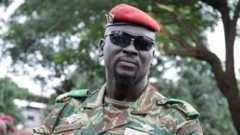
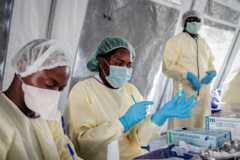
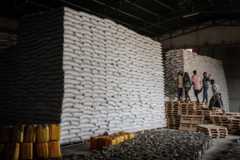
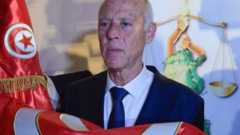
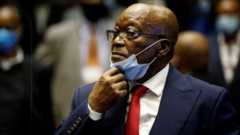
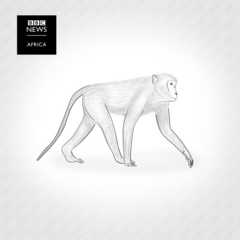

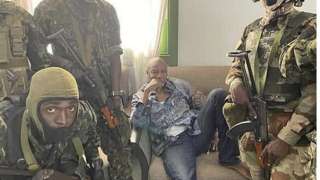

Comments
Post a Comment